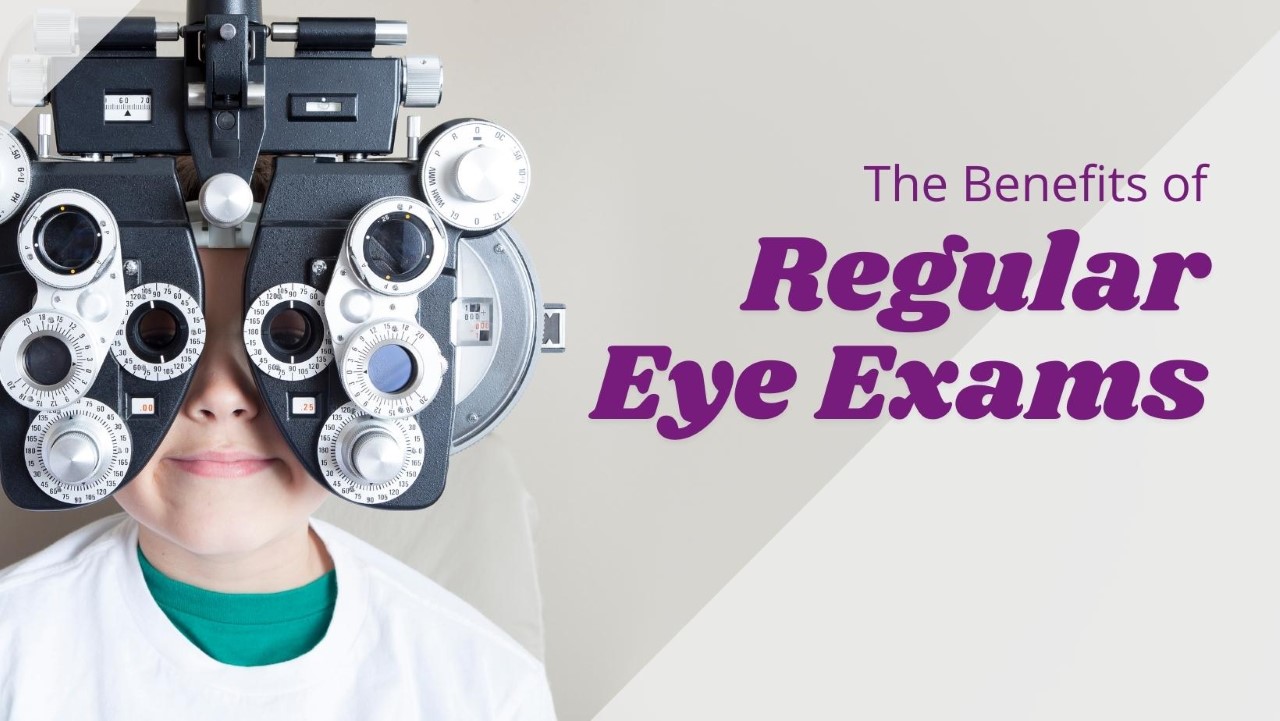The Benefits of Regular Eye Exams
The Benefits of Regular Eye Exams

Your vision is fine, right?
Well, maybe not fine but it’s good enough for you to function in your daily life, so why would you need to go to the eye doctor?
This is how many Americans think of their vision, but many do not realize just how bad their eyesight is until they get their first pair of glasses.
The fact is, over 11 million Americans over the age of 12 need some type of vision correction. And while many people think they can judge whether their eyes are worsening, only a certified optometrist can tell you if you need vision correction or not.
In this post, we will go over the benefits of regular eye exams, as well as some onset diseases that you cannot recognize until it is too late for treatment.
What an Optometrist will do for You
When you go in for an eye exam, the doctor will check your eyes for several different conditions.
-
Visual Acuity. How sharp your vision is.
-
Depth perception. Can you tell what is near from what is far away?
-
Eye alignment. Are your eyes at the same level and working together?
-
Eye movement. How adept the muscles in your eyes are.
In addition to these checks, the optometrist will dilate your pupils to check the internal health of your eye. By undergoing this dilation process the doctor can detect issues before noticeable symptoms arise.
Diseases Your Doctor Can Prevent
When you go in for your eye exam, your doctor will check for several common diseases depending on your age and health history. Here are a few that your optometrist can help prevent:
-
Cataracts. Your vision is obscured by a milky white layer. Best if detected early.
-
Diabetic retinopathy. Occurs when blood vessels in the retina deteriorate as a complication of diabetes. Because diabetes can permanently damage the eyes, people with diabetes need to go to the eye doctor often.
-
Glaucoma. A collection of different diseases that cause a slow loss of vision. Hard to detect in oneself.
-
Age-related macular degeneration. As people get older the parts of their eyes begin to deteriorate. Because of this, as people age, their visits to the optometrist must become more frequent.
-
Amblyopia. Occurs when the eye and the brain are not working together properly. This is the number one eye problem of young children, aged two to three. It must be detected early or else it can result in permanent vision loss.
Over 93 million American adults are at risk for vision loss. Only half have visited an optometrist in the past year. The sooner you begin seeing an eye doctor, the better the doctor will be able to prevent disease.
When to See Your Doctor
Depending on your age and demographic, you will need to see the doctor at different times and rates.
-
Children should see their eye doctor for the first time between the ages of three and five.
-
Diabetics should have a dilated eye exam at least once per year.
-
People of African descent over the age of 40 are at a higher risk of glaucoma and need to visit the eye doctor once every two years.
-
All adults over 60 are also at high risk for glaucoma and should see the doctor once every two years.
-
People with a family history of glaucoma should see the doctor every two years as well.
Everyone should see the eye doctor on a regular schedule, but the higher-risk candidates listed above must see the doctor more often.
Make sure you see your doctor if you experience:
-
Decreased vision
-
Draining from your eye
-
Eye redness
-
Double vision
-
Increase in eye floaters
-
Halos around light
-
Flashes of light with no source
Changing Vision in a Changing World
Many people put off going to the optometrist because they hope to avoid getting glasses or admitting they are developing a problem.
The truth is properly functioning eyes can have a dramatic impact on your quality of life.
With proper vision and regular eye exams, your performance at work and school will improve. Sharp vision allows you to perceive things that those with poor vision cannot.
If you have noticed a decrease in your vision over the past few months or any of the symptoms listed above, it is time to see your optometrist. There is no better than the staff at Family Vision Care in Oxford. Dr. Jeffrey Collins has been in practice since 1989 and has the experience and training to get your eyes working for you.
